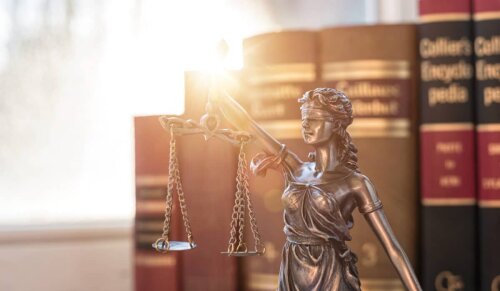Best Car Accident Lawyers in Washington
Share your needs with us, get contacted by law firms.
Free. Takes 2 min.
Or refine your search by selecting a city:
List of the best lawyers in Washington, United States
About Car Accident Law in Washington, United States
Car accident law in Washington, United States refers to the rules, regulations, and legal principles that apply when an individual is involved in a motor vehicle accident. This area of law encompasses determining who is at fault, what compensation may be available, and how claims are handled with insurance companies and in the court system. Washington is considered an “at-fault” or “tort” state, so fault must generally be established before compensation can be recovered. Victims of car accidents can seek damages for medical expenses, property damage, loss of income, pain and suffering, and other related costs.
Why You May Need a Lawyer
A car accident can result in complex legal, financial, and medical issues. While minor accidents with little damage may be resolved directly with insurance companies, there are many situations where having a lawyer can be crucial:
- You are seriously injured and face significant medical bills.
- There are disputes over who is at fault or multiple parties are involved.
- The insurance company denies your claim or offers a low settlement.
- The other driver is uninsured or underinsured.
- You encounter difficulties with your own insurance company.
- The accident caused long-term disability or permanent injury.
- There are questions about lost wages or future earning capacity.
- You are being blamed for the accident.
In these cases, a qualified car accident lawyer can protect your rights, negotiate with insurers, help gather evidence, and, if necessary, represent you in court.
Local Laws Overview
Understanding key aspects of car accident law in Washington is essential if you have been in a collision:
- At-Fault State: Washington follows the at-fault system, meaning the driver responsible for causing the accident is generally liable for damages.
- Comparative Fault: Washington applies a pure comparative fault rule. If you are partially at fault for the accident, your compensation is reduced by your percentage of fault. For example, if you are 30 percent at fault, you can still recover 70 percent of your damages.
- Insurance Requirements: State law requires drivers to carry minimum liability insurance coverage of 25,000 dollars for bodily injury per person, 50,000 dollars per accident, and 10,000 dollars for property damage.
- Statute of Limitations: You have three years from the date of the accident to file a personal injury or property damage lawsuit in Washington.
- Reporting Requirements: An accident must be reported to law enforcement if it results in injury, death, or property damage of 1,000 dollars or more. A collision report must also be filed with the Washington State Department of Licensing within four days if the accident is not investigated by the police.
- Uninsured/Underinsured Motorists: Insurance companies must offer coverage for uninsured and underinsured motorists, though this can be declined in writing.
Frequently Asked Questions
What should I do immediately after a car accident in Washington?
Check for injuries and call 911 if emergency assistance is needed. Move to a safe location, exchange information with the other driver, document the scene, and report the accident to law enforcement if required. Notify your insurance company as soon as possible.
Who determines fault in a car accident?
Fault can be determined by law enforcement, insurance companies, or the court system. Evidence such as police reports, witness statements, and photographs are reviewed to make a determination.
Can I recover damages if I was partially at fault?
Yes. Washington uses the pure comparative fault rule. You can recover compensation reduced by your percentage of fault in the accident.
How long do I have to file a claim or lawsuit after a car accident?
You have three years to file a personal injury or property damage lawsuit from the date of the accident.
What types of compensation can I claim?
You may be able to claim compensation for medical expenses, property damage, lost wages, pain and suffering, rehabilitation costs, and other accident-related losses.
Do I have to report every car accident to the police?
You are required to report an accident if there are injuries, a fatality, or more than 1,000 dollars in property damage. If police do not respond, you must file a report with the Department of Licensing within four days.
What if the other driver does not have insurance?
If the other driver is uninsured or underinsured, you may be able to make a claim against your own uninsured or underinsured motorist coverage, if you have it.
How does insurance handle payment for damages?
Insurance companies investigate the accident, determine fault, and negotiate settlement amounts. Your own coverage may apply depending on the policy and circumstances. Disputes may be resolved through negotiation, mediation, or litigation.
Should I speak with the other driver's insurance company?
It is often advisable to speak with a lawyer before providing a recorded statement or signing any documents from the other driver’s insurance company. They may use your statements to limit liability.
When should I contact a car accident lawyer?
Contact a lawyer as soon as possible if you are seriously injured, face high medical bills, there are fault disputes, or the insurance company is not treating you fairly. Early legal advice can help protect your rights.
Additional Resources
If you need further information or support regarding car accidents in Washington, consider contacting the following resources:
- Washington State Department of Licensing - For accident reporting, driver licensing, and insurance information
- Washington State Office of the Insurance Commissioner - For help with insurance issues and complaints
- Washington State Bar Association - For lawyer referral services and legal resources
- Washington Department of Transportation - For information on traffic safety, road conditions, and accident statistics
- Local police or sheriff's department - For filing police reports and seeking emergency assistance
Next Steps
If you or a loved one has been involved in a car accident in Washington, consider taking the following steps:
- Seek medical attention immediately, even if injuries do not appear serious.
- Document the accident scene by taking photos and gathering witness information.
- Contact your insurance company to start the claims process.
- Keep records of all communications, medical visits, and expenses related to the accident.
- Consider consulting a qualified car accident lawyer, especially if you have significant injuries, are unsure about your rights, or encounter difficulties with insurance companies.
- Act promptly, as legal deadlines can affect your ability to recover compensation.
Being proactive and informed can help protect your rights and improve your chances of a successful outcome after a car accident in Washington, United States.
Lawzana helps you find the best lawyers and law firms in Washington through a curated and pre-screened list of qualified legal professionals. Our platform offers rankings and detailed profiles of attorneys and law firms, allowing you to compare based on practice areas, including Car Accident, experience, and client feedback.
Each profile includes a description of the firm's areas of practice, client reviews, team members and partners, year of establishment, spoken languages, office locations, contact information, social media presence, and any published articles or resources. Most firms on our platform speak English and are experienced in both local and international legal matters.
Get a quote from top-rated law firms in Washington, United States — quickly, securely, and without unnecessary hassle.
Disclaimer:
The information provided on this page is for general informational purposes only and does not constitute legal advice. While we strive to ensure the accuracy and relevance of the content, legal information may change over time, and interpretations of the law can vary. You should always consult with a qualified legal professional for advice specific to your situation.
We disclaim all liability for actions taken or not taken based on the content of this page. If you believe any information is incorrect or outdated, please contact us, and we will review and update it where appropriate.
Browse car accident law firms by city in Washington
Refine your search by selecting a city.











